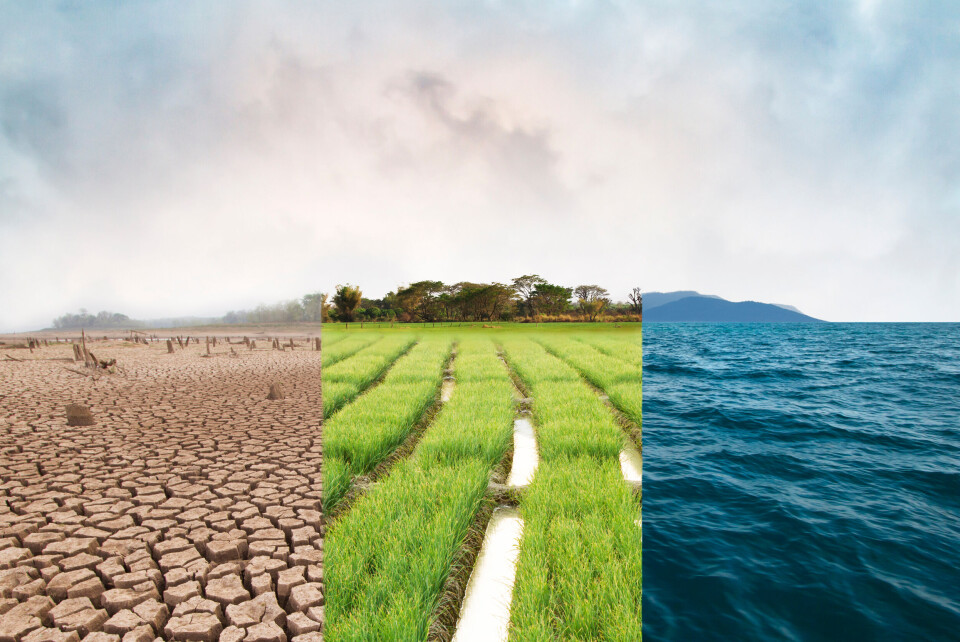-
La Voie Bleue: European Cycle Route of the Year is in France
700km bike path linking Luxembourg and Lyon has been crowned winner of the 2026 title
-
MAP: See how your location in France affects online food shop prices
New analysis shows how your shop compares on average
-
Further sightings of processionary caterpillars in France prompt action from local authorities
Caterpillars have arrived early after mild winter
Home damage, wildfires: How warmer climate is forecast to alter France
Axa Climate has released predictions of how climate change could change France by 2050

Hotter summers, forest fires, and shorter ski seasons: These are some of the ways that climate change will affect France by 2050, according to a new study.
Christelle Castet, head of science at Axa Climate, who produced the report, said: “The whole of France is affected. To different levels and by different issues, but there is no zone that will escape.”
The document explains the potential impact of climate change on individual households and property, notably from an insurance perspective. It is based on the most extreme predictions from the most recent report by the Intergovernmental Panel on Climate Change (IPCC).
Ms Castet said: “When we’re talking about adaptation, it’s better to have a more pessimistic view, so we are ready to face up to stronger constraints.”
The study conclusions include:
Lower crop yield
The study predicts that corn crops will produce 25% less, with a similar impact on white sugar produced from sugar beet in the country. Fruit trees will also be affected.
It reads: “In 2050, half of the fruit production will be impacted by high or extreme climate risk (droughts, flooding, storms), which is twice as high as usual.”
Read more: How winemakers in France combat the effects of climate change
Higher coastlines
Water levels on some parts of the French coast could rise by as much as 20-25cm, the report states, including on the Côte d'Opale (northeast France, including Pas-de-Calais and Nord).
The study states: “The boardwalk at Deauville [Normandy] is 20 cm below the high tide line that could be reached as a result of rising sea levels, high tides, and storm surges.”
The Lacanau (Gironde) coastline is also at high risk, with 40% of homes and businesses close to the seafront threatened by the rising water, the report said.
Shorter ski seasons
Many ski stations will be forced to open later and later due to a lack of snow, the report predicts.
It says the Avoriaz 1800 station, for example, will have to be closed for three extra weeks per year in comparison to the current season.
Read more: Climate change: Snow disappearing from Alps, France included
Higher forest fire risk
The risk of forest fires will intensify, the report says.
It predicts the forest fire risk season will be “three times longer in the Landes than it is today”. It said that the number of major wildfires in the southeast of the country will rise from an average of seven per year to 12.
Many of these areas have already been severely affected by forest fires in recent years.
Warmer temperatures
Temperatures will continue to increase, the report states.
For example, it forecasts that in Montpellier there will be a 77% increase in the number of days above 24C; and in Strasbourg, there will be a 26% drop in the number of days below 10°C.
Read more: How will weather be in my French town in 2050? New tool helps find out
Greater risk of property damage
Shrinkage and expansion of ground soil have already proven to be damaging for many houses across France. The report predicts that this will continue, and affect millions of homes.
It states: “By 2050, 48% of mainland France - representing almost 10.4 million single-family homes built today - is likely to be affected by the phenomenon of clay shrinkage and swelling, leading to cracks and damage.”
The report was partly created to help Axa understand the insurance risks due to climate change in the next few decades. Already in 2022, the effects of climate change cost insurance companies €2.9 billion, according to the Haut Conseil pour le climat.
Read more: Is your French property in newly declared drought ‘disaster’ zones?
Related articles
‘Face the reality’: France ‘must prepare’ for +4C global warming
How climate change will affect major cities in France by 2050
























